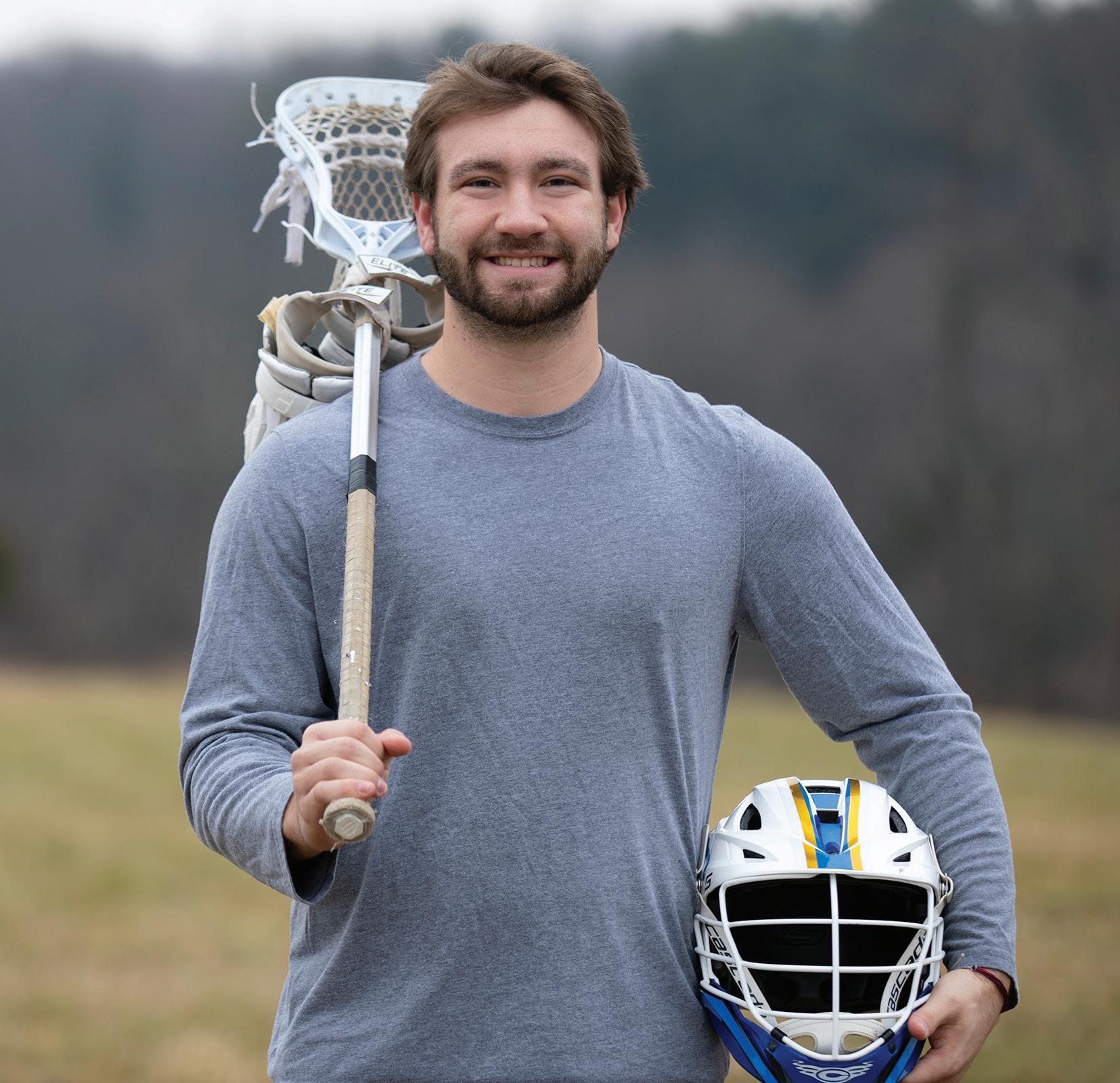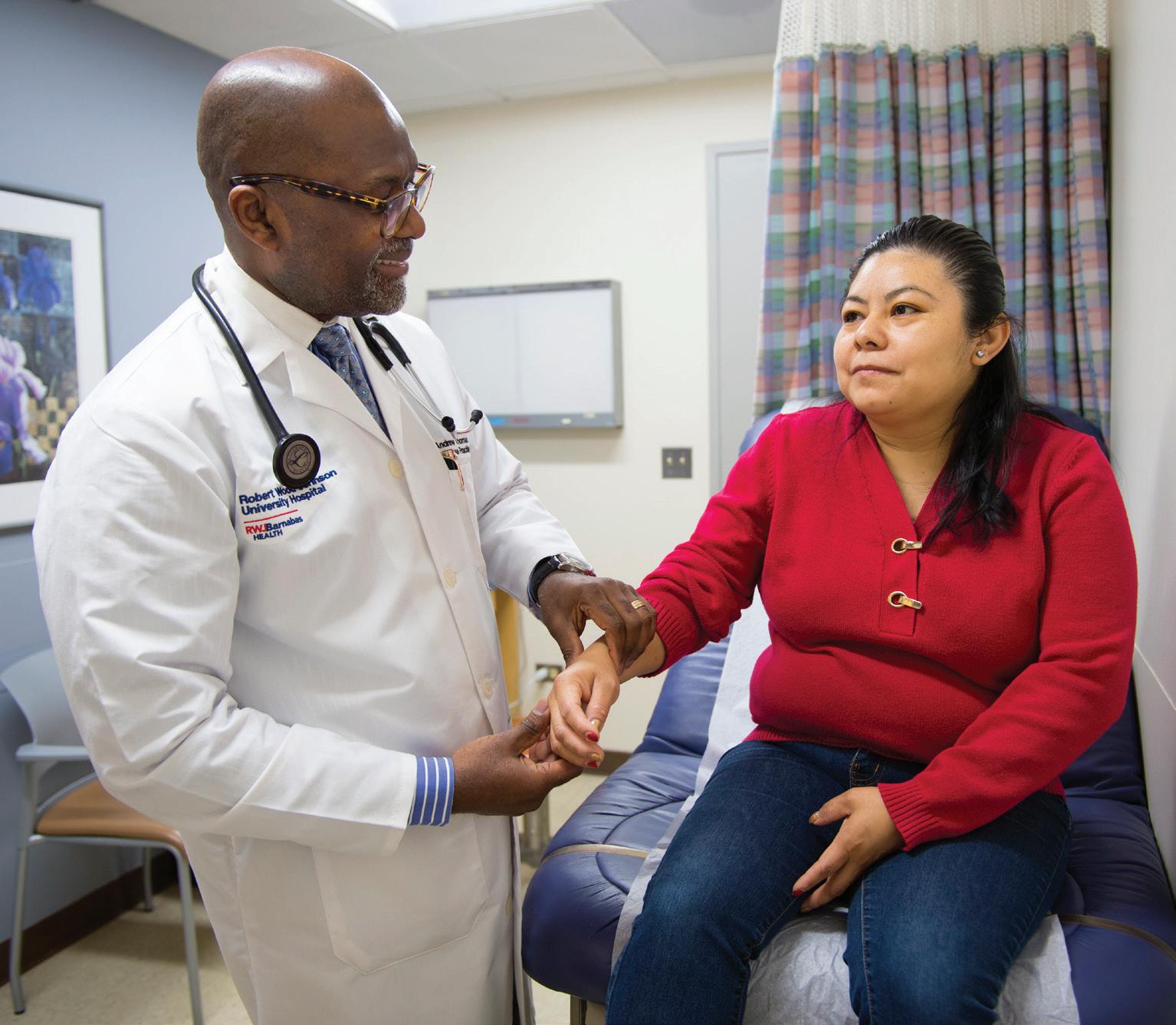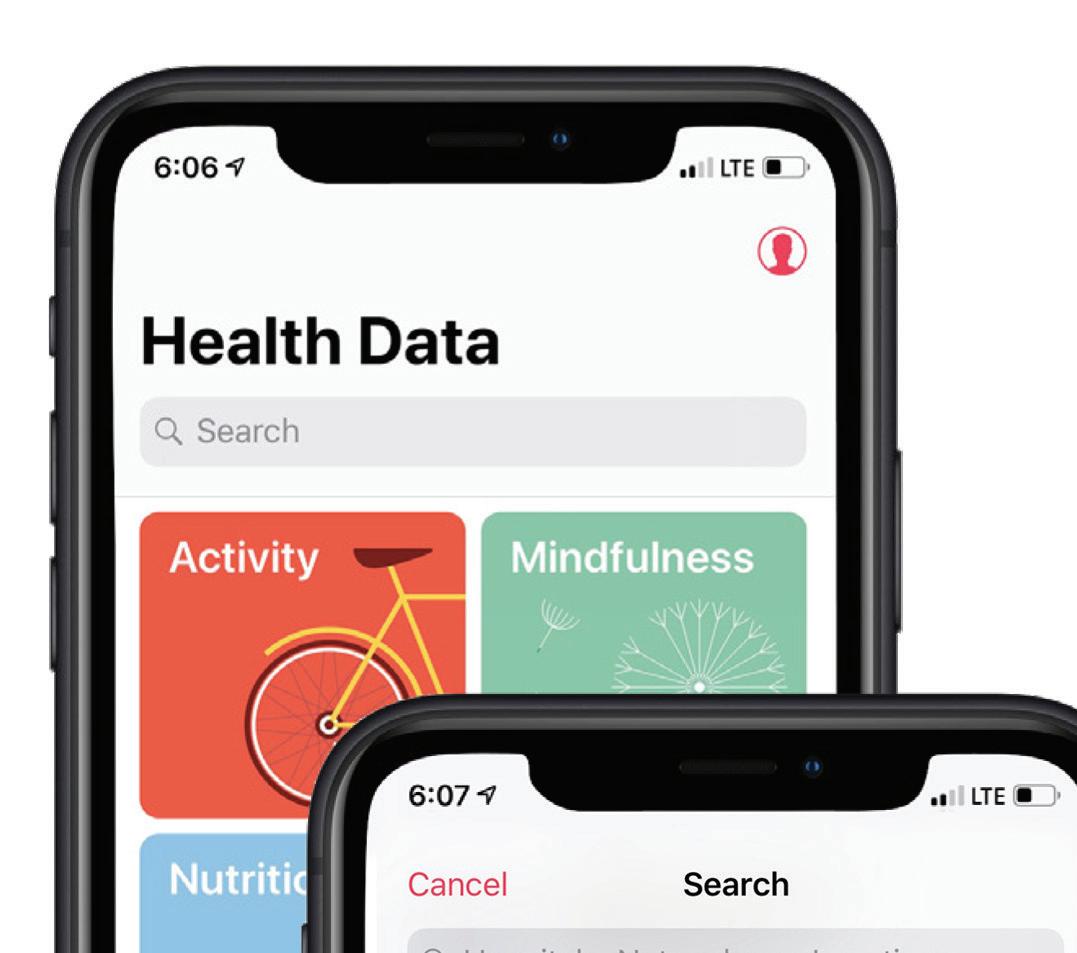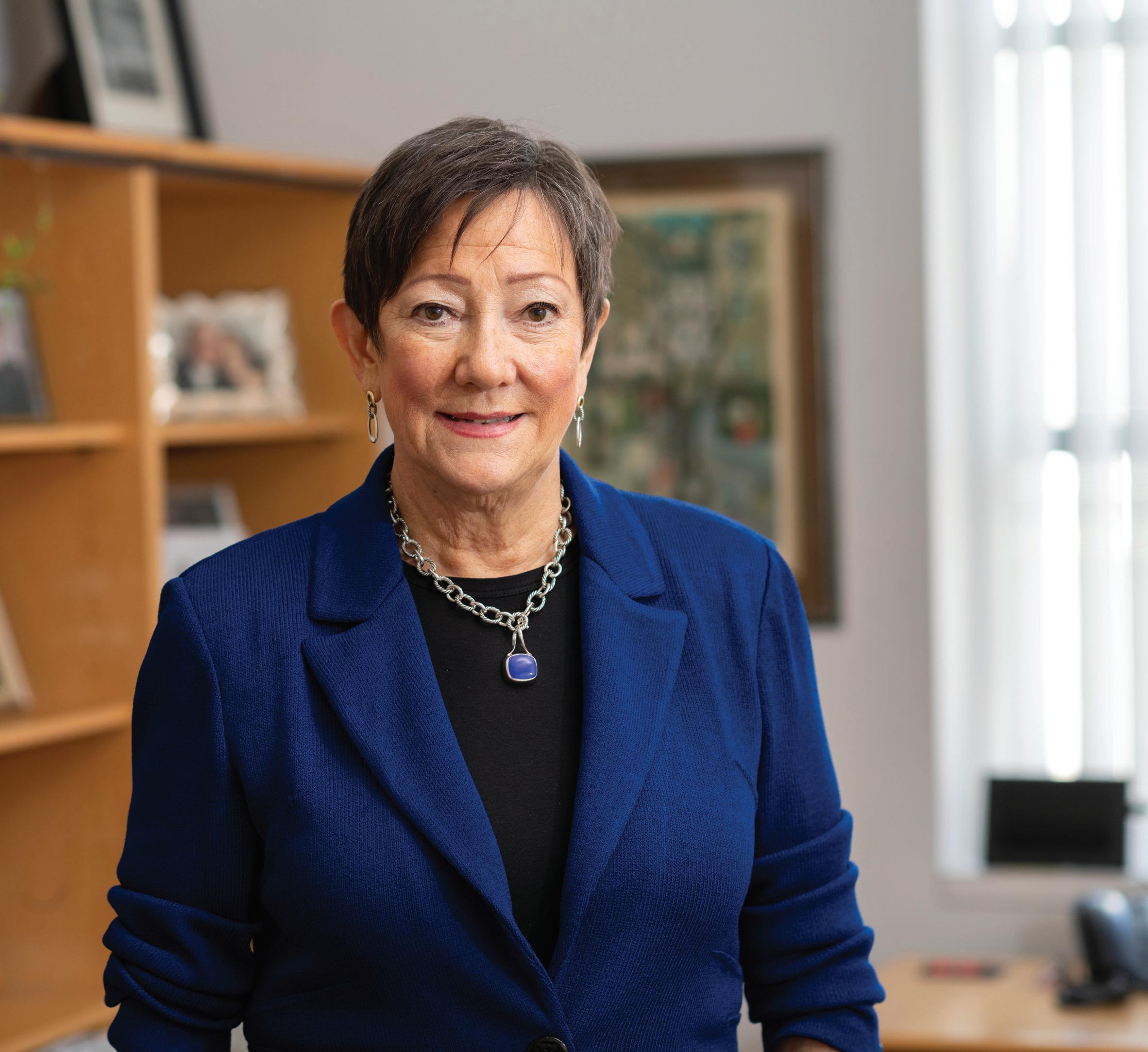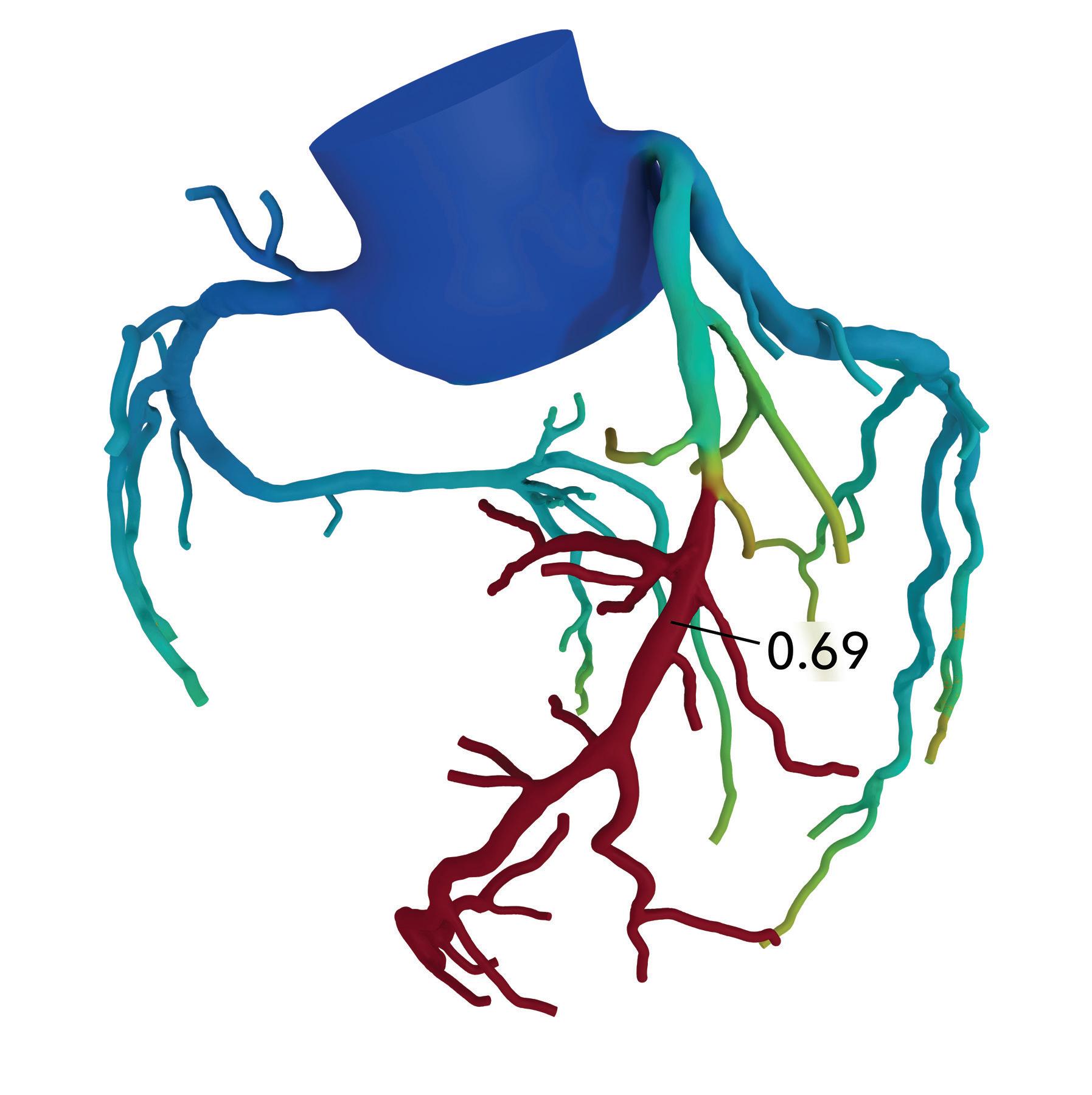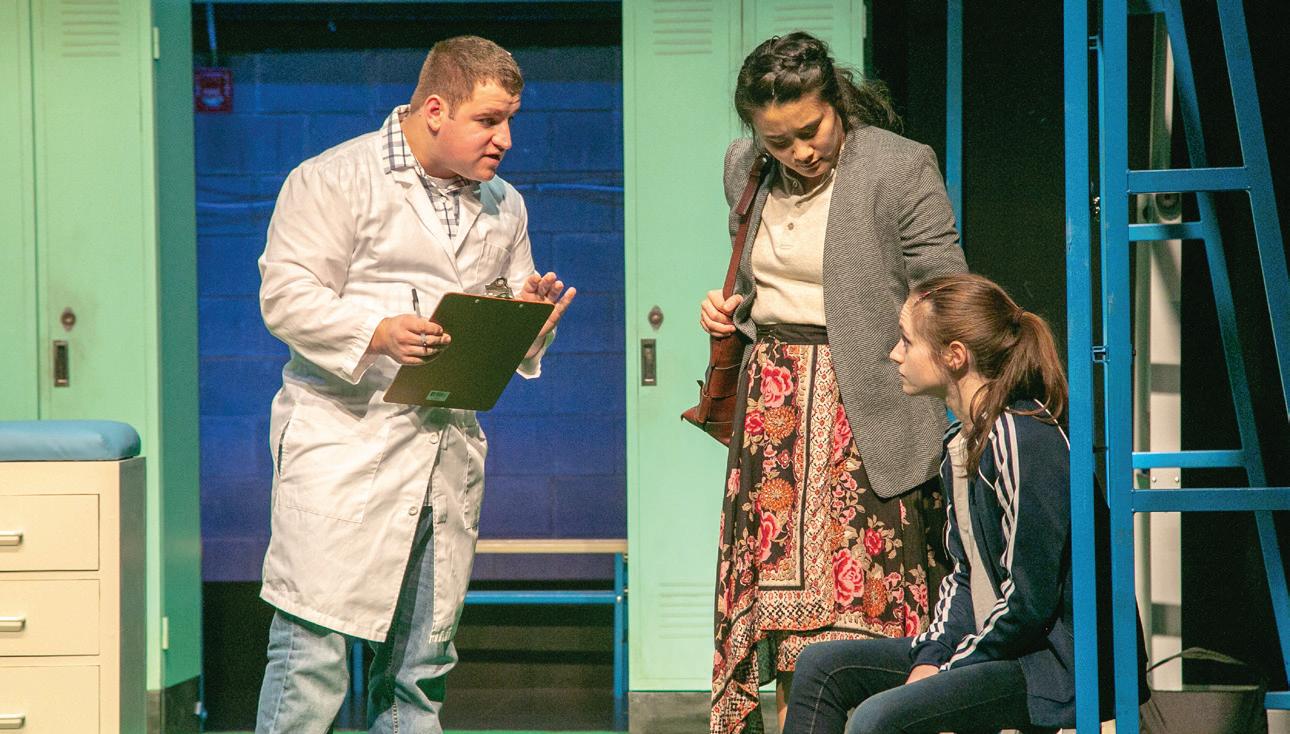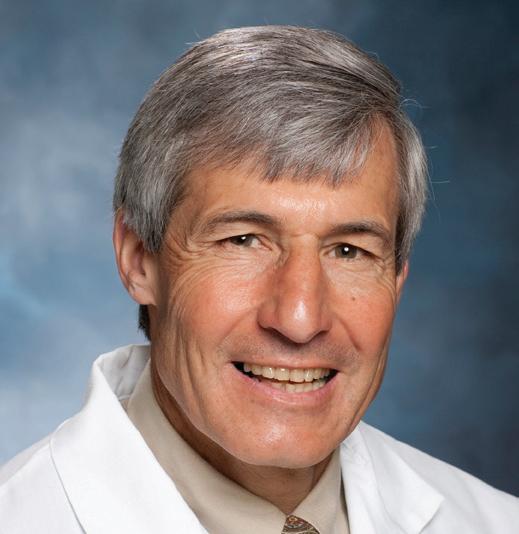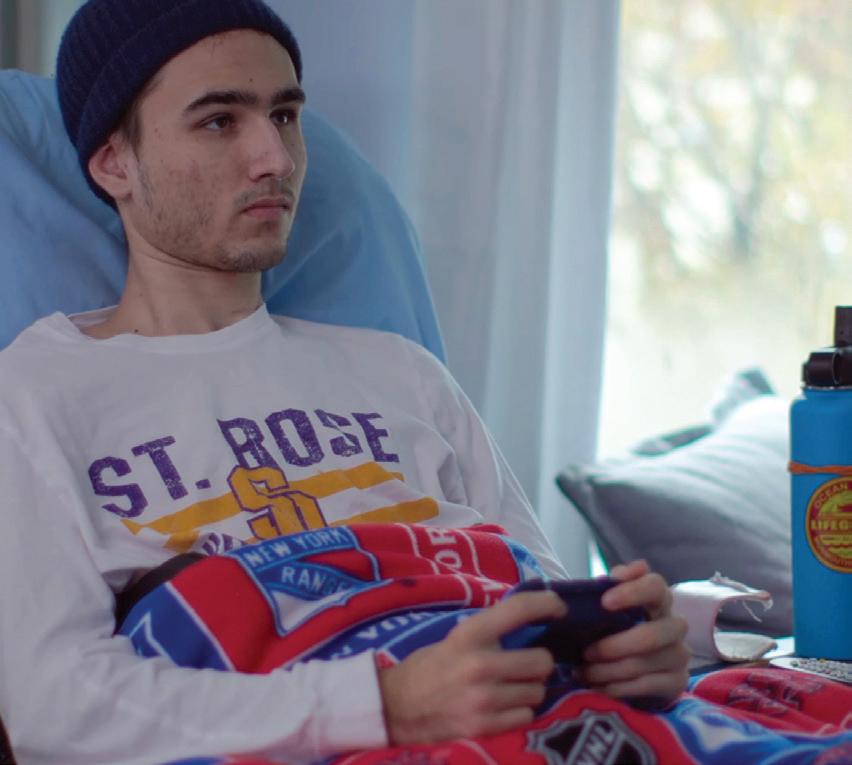At left: Andrew Thomas, APN, Director of Care Transitions and Care Coordination at RWJUH, with a patient. Above, from left: Vanessa Nazario, Director, Diversity and Inclusion; Laurie Eckert, pharmacist; Andrew Thomas; Melissa Hernandez, APN; and Maria Thompson, social worker. Note: These photos were taken before mask and social distancing recommendations were in place.
A COMMUNITY EFFORT
A PRESCRIPTION FOR SURVIVAL AN INNOVATIVE PROGRAM HELPS ENSURE THAT PATIENTS HAVE ACCESS TO LIFESAVING MEDICATIONS.
F
or some patients—even those with health insurance—lifesaving medications are simply not affordable. Fortunately, there’s help at Robert Wood Johnson University Hospital (RWJUH). The Quarters4Meds program, which was launched in 2014, helps to fund medications through a partnership with Walgreens. “We provide empty medicine bottles and ask people to donate their quarters,” says Andrew Thomas, APN, Director of Care Transitions and Care Coordination at RWJUH. Walgreens supplies the empty medication bottles and offers a discount (65 percent) on the cost of medication. It takes 40 quarters ($10) to fill a bottle. In some cases, this can fund up to six months’ worth of medication.
“Patients who can’t afford their medications are often the sickest ones,” says Thomas. “If we can help them, we can keep them healthy and out of the hospital.” Serious conditions like diabetes, high blood pressure and heart disease require medication. In some cases, medication can help keep a patient alive after surgery. One recent RWJUH patient who had openheart surgery needed a medication that cost nearly $500 per month. A nurse told her about the program, and she qualified for it. With tears in her eyes, she expressed gratitude for her physicians, nurses and the Quarters4Meds program. “If it weren’t for the help I received, I might not be alive,” she says. “Thanks to the medication and procedures, I’ve been able to return to work, and I feel good.”
The program pays for six to 10 prescriptions per month, says Thomas. “We provide the medication until the patient can find a replacement program,” he says. “Some qualify for Medicaid, but it can take 30 to 45 days for the program to kick in.” On average, patients receive about three months of a medication for free through the program. To qualify for the program, a patient must be admitted and discharged from RWJUH and demonstrate financial need. The patient’s prescription is converted to a voucher, which is submitted to Walgreens. “Our patients are very appreciative,” says Laurie Eckert, RPh, the pharmacist who reviews the prescriptions for Quarters4Meds. Raising funds for the program, which costs about $10,000 per year, is a community effort. Area schools, organizations and hospital staff members contribute funds on a regular basis. The empty medication bottles are filled by high school students, medical students and Rotary Club members. “The program is great for high school students in particular because it teaches them about philanthropy and how a small contribution can go a long way,” says Thomas.
For more information about Quarters4Meds, call 732.484.2079.
Robert Wood Johnson University Hospital
NB_Quarters4Meds_Sum20_final.indd 17
|
RWJBH.ORG/NEWBRUNSWICK
| 17
7/29/20 1:55 PM


